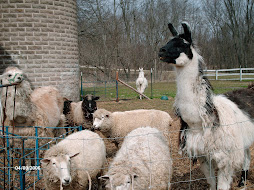Burial practice imagery is repeated throughout the play. When Antigone talks about her brothers to Ismene she says, "Eteocles, they say, with due observance of right and custom, he hath laid in the earth, for his honour among the dead below. But the hapless corpse of Polyneices-as rumour saith, it hath been published to the town that none shall entomb him or mourn, but leave unwept, unsepulchred, a welcome store for the birds, as they espy him, to feast on at will" (Sophocles par. 5). In fact, it is such an important tradition that Antigone risks her own life to see that her brother has the proper burial rites. This is, of course, the foundation, the spark that the play is based upon. If Antigone had not gone and buried Polyneices, she would never had disobeyed Creon and thus would not have been sentenced to death. The imagery of burial rites goes hand in hand with another reiterated image: Antigone's love and loyalty to her family. She says to Ismene, "I will do my part,-and thine, if thou wilt not,-to a brother. False to him will I never be found." (par. 11). She says this as well: "I, then, will go to heap the earth above the brother whom I love." (par. 17).
Creon's fatal flaw is his arrogance. Specifically, he doesn't take any one's advice and always thinks he is in the right each and every time he speaks. This is shown when Creon and Haemon are arguing: "Men of my age are we indeed to be schooled, then, by men of his?" (par. 151). Creon also says, "Am I to rule this land by other judgment than mine own?" (par. 159). It is Creon's arrogance that causes his family to kill themselves one by one. His willful blindness to Haemon's love for Antigone resulted in Haemon committing suicide and Haemon's death led up to Creon's wife killing herself. Teiresias warned Creon of this, but, once again, Creon took his place on his high horse and would not dismount.
After Creon discovers that his beloved son is dead, he says, "Woe is me, for the wretched blindness of my counsels!" (par. 260) and "thy spirit hath fled,-not by thy folly, but by mine own!" (par. 260). This is the anagnorisis of "Antigone". The peripeteia comes soon after, when Creon discovers the horrible truth of Eurydice ending her own life because of her grief. Creon realizes that he essentially caused the deaths of his wife and son. The catharsis arrives after Creon delivers these lines: "Lead me away, I pray you; a rash, foolish man; who have slain thee, ah my son, unwittingly, and thee, too, my wife-unhappy that I am! I know not which way I should bend my gaze, or where I should seek support; for all is amiss with that which is in my hands,-and yonder, again, a crushing fate hath leapt upon my head." (par. 179).
The manner in which women are characterized in the play "Antigone" is a combination of weakness and strength. Ismene is pictured as timid and ruled by her fears and emotions, as was commonly thought of women in those days: "Nay, we must remember, first, that we were born women, as who should not strive with men; next, that we are ruled of the stronger, so that we must obey in these things" (par. 14). On the other hand, Antigone is the very essence of loyalty, and love. She is ruled by her moral compass as shown here: "I will bury him: well for me to die in doing that" (par. 15). A piece of Creon's dialogue also reveals what was thought of women back then when he says, "Better to fall from power, if we must, by a man's hand; then we should not be called weaker than a woman" (par. 147). This one statement packs a huge punch and sums up the general characterization of women.
Subscribe to:
Post Comments (Atom)



No comments:
Post a Comment